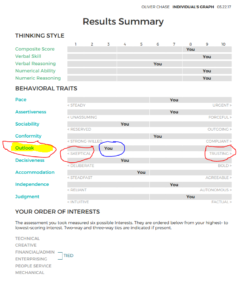How to Be a Better Leader
Complimenting Personality Traits for Improved Leadership
Complementing your personality traits for improved leadership is essential to become a better leader. This requires a good understanding of yourself and your team members.
I’m a volunteer director of communications for my local cycling club, a non-profit organization. I am part of an executive committee and there is a secretary treasurer who looks after the finances.
I had initiated an ad campaign on social media to build awareness of the club and attract new members. We were having an executive meeting two weeks before the deadline for registration for the current year. The numbers weren’t looking good and the secretary treasurer wanted to cut expenses as we were not on target with his budget.
I was somewhat shocked because I still saw a great window of opportunity to sign up new members as there was still two weeks left before the deadline. But the treasurer was steadfast in refusing to believe that we would get new members. I was quite upset in the moment and raised my voice to assert my point of view. When we reached the registration deadline we had signed up over 100 new members, which surpassed my target and sufficed to meet the budget forecast for revenue. I was quite happy and at the next meeting I asked what made him think we would not reach our goal. He answered that he could just not see it happening but admitted that the campaign did work.
 The secretary-treasurer has a completely different perspective on things then me. I have a much more positive expectation for outcomes and people. I see the glass half full and he sees it half-empty.
The secretary-treasurer has a completely different perspective on things then me. I have a much more positive expectation for outcomes and people. I see the glass half full and he sees it half-empty.
But looking back I see this as a positive. I have much more of an entrepreneurial type personality than the secretary-treasurer who is a very careful suspecting type. This is often very common with financial people in organizations and is a good thing. The doubt that the treasurer expressed made me work harder on my campaign to reach my objective. It made me question what I was doing to make sure my plan was realistic and that I would stay within the budget for the campaign.
Self-Knowledge
How do you get a better understanding of yourself and your team member so you understand how you can complement each other? I do this by using an assessment tool, specifically the PXT Select. This psychometric assessment tool measures important work related behavioural traits on a scale of 1 to 10.
On the scale of outlook, I score 7. This sometimes can be problematic as I usually expect things to go as I think they should and may not do enough due diligence to validate my thinking. I don’t know what the secretary-treasurer’s score is on this scale because he never completed the assessment. But I would guess that it would be probably two or three based on the behaviour I observed.
My father was an entrepreneur and used to say no when to listen to your accountant and know when not to. He meant that the accountants always see the potential risk in everything and do not have the same positive outlook as an entrepreneur who believes they can create the results.
But at the same time a more negative approach can curb your enthusiasm and force you to plan better and act accordingly.
In summary, it’s important to know yourself, your strengths and weaknesses when it comes to leading your company or department. This will help you to see where you need to complement yourself to gain a more holistic perspective on leading and managing your organization or team.
Learn more about our assessment tools here.
